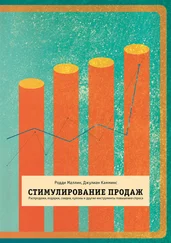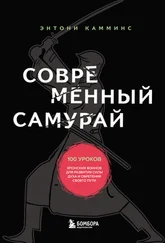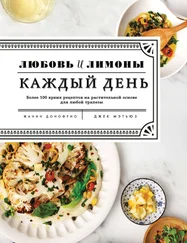‘Lydia, oh my goodness, what are you doing here?’ His voice arrives before he does, but soon he maneuvers himself between the rows of chairs to where she’s standing. He embraces her. ‘It’s so lovely to see you, guau, what a surprise!’
Luca watches while this man, Carlos, kisses Mami on both cheeks and holds both her hands in his.
‘This must be Luca,’ the man says, bending toward him where he’s still seated on the folding chair. ‘You look so much like your papi .’ He straightens up. ‘Where’s Sebastián, did he come with you?’
‘You haven’t heard the news.’ Mami’s voice sounds far away. Luca can tell without having to look that Carlos’s face has suddenly shifted, that it’s drained to a sickly gray, that he’s already building the internal fortifications he’ll need in order to hold the horrific story Mami’s about to tell him.
‘Come,’ Carlos says, ‘we can talk upstairs.’
There’s an office there, and it’s not quite accurate to say that Luca zones out while his mother and Carlos talk, because that description would indicate some active participation of abstention on his part. Instead, his consciousness, like a helium balloon fastened to his person by some taut and fragile string, momentarily floats away. His body sits at a table with his backpack at his feet, his legs swivel the chair beneath his weight, his hands play with a nearby dish of paper clips, hooking them together into long strands, but his internal mappings are on vacation. The grown-ups glance at him now and again, past the barricades of their warbled voices and ashen faces, and his body responds to their questions with the appropriate nods or shrugs. A paper cup of water is set on the table before him, and he takes a dutiful sip. Downstairs, someone is playing the drums. An electric guitar. Luca can feel the bass vibrating through the floor. Then they’re in Carlos’s car, and they’re driving through the streets of the city to Carlos’s house. Mami sits in the backseat and tries to hold Luca’s hand. He sees this, sees Mami’s hand covering his own, and it’s the warmth and press of her fingers that bring him back.
Once they pass out of la zona centro, Luca sees that Chilpancingo isn’t so different from Acapulco. There are no seagulls here, no tourists, and the streets aren’t as broad. But there are many colorful shops and taxis, people wearing their church clothes in the sunshine. There are ladies with handbags slung over their shoulders, boys with slipshod tattoos. Plenty of bright, foamy graffiti. The houses are all painted in vivid colors. Luca watches them flip by like cards in a deck. After three and a half songs have played on the radio, Carlos turns onto a street that’s slightly wider than the others. There’s an arching canopy of shade trees that creates the sense of entering a secret place, a hushy hideout. In the middle of the block stands a handsome white church with modest twin bell towers at the front. It’s the kind they’re used to. Católica. The other buildings on the crowded street stand back from the little church, giving it room. Carlos pulls into a parking spot.
Carlos’s house is turquoise – the exact color of the middle stripe of ocean in Acapulco, in between the light sandy stripe near the shore and the darker blue at the horizon when you stand on the steps at Plaza España and look out on a sunny day. The house feels big and modern even though it’s attached to an identical purple one on the right and an identical peach-colored one on the left. Carlos carries their bags inside.
Carlos’s wife is named Meredith, and she’s white. She’s from Estados Unidos , and that’s a fact Luca could’ve gathered without being told, just from the quick glimpse he got of her in church before Carlos took them upstairs. Her voice, her clothes. Her way of holding people by the shoulders and shaking them slightly while she speaks to them. Luca investigates the empty house, the family photographs, a closer look at the three boys, who all have Meredith’s pink complexion and Carlos’s dimples. The middle one looks about the same age as Luca. Meredith eventually arrives home without those boys (who stayed behind for even more church), and with her comes Luca’s first experience of proprietary grief.
Proprietary is a word Luca knows (in Spanish, but not in English) because he knows lots of words other eight-year-olds don’t, like viscous and bombastic and serendipity . But he’s never truly understood the meaning of the word propietario until now. He’s never felt the feeling before. It rumbles through him like a steamroller with a broad, flattening crush. Because who is this woman, crying for Papi? Who is this lady with her quivering features and her leaking eyes and her trembling hands and her need to be consoled? It surprises Luca – his ungenerous interpretation of such raw emotion. After all, she’d been Papi’s friend at one time. Or at least she’d married Papi’s friend. And she’d liked Papi well enough to make him the godfather to her eldest son. So why shouldn’t she be saddened, even traumatized, by the news of his unexpected and violent death? Why shouldn’t she weep and lament and exhibit her devastation? Luca cannot, therefore, explain why the display of it irritates him so. When she tries to hug him, he can’t endure it, and Mami doesn’t make him. She intercepts him and takes him to the bathroom and splashes water on his face, and when they return, Meredith has composed herself. She urges Mami to sit while she makes tea for everyone. The tea doesn’t move from the cups, but the conversation goes on for a long time regardless, and Luca lets most of it pass him without landing.
Meredith met Carlos when she was a college-aged missionary from Indiana, and she’s still involved with that faraway cornfield church. That summer she first came here, she fell in love with Carlos and with his country. She liked the way Mexicans were easy in their faith. She liked the sense of being in a country where it wasn’t controversial or weird to talk openly about God. In Mexico, prayer was normal then, public. Expected. To Meredith, those cultural conventions felt miraculous. So she and Carlos married young, and then she made it her life’s work to preserve the link between Chilpancingo and that Indiana church community, to share the experience of this place with others.
In fact, right now there are fourteen Indiana missionaries visiting here for spring break. Those missionaries are being hosted in Chilpancingo by the church Carlos and Meredith attend. Meredith is the chief coordinator of this annual visit, and two additional ones each summer. It’s a nonstop wheel of blond Indiana missionaries, cogging their way through Guerrero. The current group will fly home to Estados Unidos Wednesday afternoon, so the church’s three passenger vans are scheduled to depart for Mexico City at seven o’clock Wednesday morning. This is where the conversation takes on amplified urgency. Luca sits up in his chair and fiddles with the handle of Mami’s teacup.
Carlos says, ‘They can go in the shuttle, of course. It’s perfect.’
Meredith says nothing with her mouth, but conveys plenty with her eyes, and none of it is very accommodating.
And then Mami says, ‘We’d be safe getting through the roadblocks, if we were on the church shuttle.’
‘They’d never expect you to be with the missionaries,’ Carlos says.
Mami shakes her head. ‘They wouldn’t even look.’
And then Meredith uses her mouth. ‘Safe for who? Maybe safer for you, but I’m sorry, I can’t put all those kids at risk.’ She shakes her head, and Luca has the notion that she looks nothing like the woman who was crying for Papi just a few minutes ago. She’s different colors entirely, and her spongy features have hardened into new shapes.
Читать дальше












